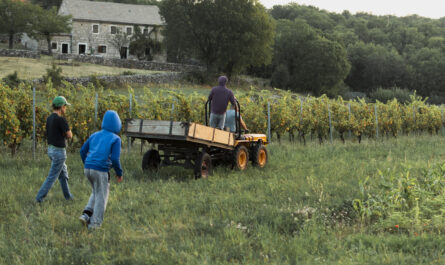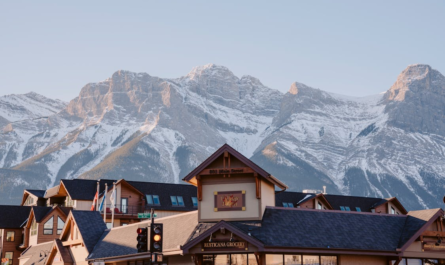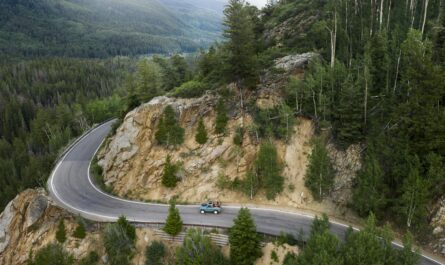Located in the heart of the Austrian Alps, the picturesque village of Alpbach has long been a symbol of traditional Tyrolean charm. Known for its wooden chalets, lush alpine meadows, and deep-rooted customs, Alpbach is a place where history and heritage are deeply cherished. However, like any community, it faces the challenge of adapting to modern demands while preserving its cultural essence. This article explores how Alpbach has embraced modernity without losing its soul, examining its architectural, economic, technological, and environmental transformations.
A Legacy of Tradition
Alpbach’s identity is firmly rooted in its traditions, which have been carefully preserved over centuries. The village’s aesthetic, characterized by uniform wooden architecture, was safeguarded through strict building regulations established in the 1950s. These rules ensured that new constructions maintained the visual harmony that makes Alpbach one of Austria’s most beautiful villages. Every structure, whether a private home or a public building, adheres to this architectural standard, ensuring that the village retains its quintessential Alpine character.
In addition to its architectural heritage, customs such as the Almabtrieb (cattle drive festival), traditional folk music, and regional craftsmanship continue to define daily life. During the Almabtrieb, villagers celebrate the return of their cattle from mountain pastures with elaborate decorations, music, and feasting—a tradition that dates back centuries. Local artisans keep age-old crafts alive, including woodcarving, embroidery, and leatherwork, passing down their skills through generations.
Even in an era of globalization, these traditions remain relevant. Efforts have been made to engage younger generations, such as educational programs in schools, community-led workshops, and the promotion of traditional attire and music in local festivities. This ensures that Alpbach’s rich heritage is not only preserved but also actively celebrated.
Architectural Evolution: Merging Old and New
One of the most visible ways Alpbach has balanced tradition with modernity is through its architecture. While new buildings have been constructed to meet contemporary needs, they adhere to traditional design principles, maintaining the village’s aesthetic integrity. Modern eco-friendly hotels and chalets now incorporate sustainable materials such as locally sourced wood and stone, energy-efficient insulation, and solar panels—yet they blend seamlessly into the rustic landscape.
The Congress Centrum Alpbach is a prime example of this fusion. Opened in 1999 and expanded in recent years, the conference center integrates wood and glass to create a structure that respects tradition while serving as a hub for international meetings, such as the annual European Forum Alpbach. This venue has become an emblem of how Alpbach can host global events while staying true to its identity.
Additionally, local homeowners have adapted by integrating modern comforts without compromising traditional aesthetics. Interiors of many chalets now feature smart home technology, geothermal heating, and contemporary furnishings while retaining traditional wooden exteriors and hand-carved details.
Economic Adaptation: Tourism and Innovation
Historically, Alpbach’s economy was based on agriculture and forestry, but tourism has emerged as the driving force behind its financial stability. The village has successfully positioned itself as a year-round destination, offering skiing in winter and hiking in summer. The shift towards eco-tourism and wellness tourism reflects global trends while aligning with Alpbach’s commitment to sustainability.
The region has also invested in high-quality hospitality services. Family-run guesthouses, boutique hotels, and organic farm stays provide an authentic experience for visitors while supporting the local economy. Additionally, farm-to-table dining experiences and local markets allow tourists to engage with the community’s agricultural roots.
Moreover, the European Forum Alpbach, held annually since 1945, has transformed the village into a center for intellectual discourse. Attracting thought leaders from across the world, this event has boosted the local economy while reinforcing Alpbach’s reputation as a forward-thinking community. The forum covers topics such as sustainability, digital transformation, and cultural preservation—issues that resonate with Alpbach’s own developmental path.
Technology and Connectivity
Despite its traditional outlook, Alpbach has embraced technological advancements to enhance the lives of its residents and visitors. High-speed internet, smart tourism applications, and digital payment solutions are now part of daily life. These innovations allow Alpbach to cater to modern travelers without compromising its intimate, small-village atmosphere.
Furthermore, local businesses, from boutique hotels to family-run restaurants, leverage digital platforms for marketing and customer engagement. Social media campaigns, virtual tours, and online booking systems have helped Alpbach attract a wider audience while maintaining its exclusivity. Digital tools also assist in preserving history—many heritage sites now offer augmented reality experiences to educate visitors on the village’s past.
Environmental Sustainability: A Commitment to the Future
Preserving the natural beauty of Alpbach has been a priority, and the village has made significant strides in environmental sustainability. Initiatives such as renewable energy adoption, waste reduction programs, and sustainable farming practices are crucial components of Alpbach’s strategy to balance progress with ecological responsibility.
One of the most notable projects is the push for energy-efficient public transportation and electric vehicle incentives. The village has expanded its network of eco-friendly buses and promoted e-bike rentals to reduce carbon emissions. Additionally, hiking and ski resorts are adopting measures to minimize environmental impact, such as limiting artificial snow production, preserving natural habitats, and promoting responsible tourism practices.
Water conservation and waste management have also seen major improvements. Hotels and restaurants now prioritize locally sourced ingredients, reusable materials, and biodegradable packaging to minimize waste. The community has embraced recycling initiatives and energy-efficient heating systems, further reducing Alpbach’s environmental footprint.
Challenges and the Road Ahead
While Alpbach has successfully navigated modernization, it faces ongoing challenges. The increasing cost of living and housing poses difficulties for young locals who wish to remain in the village. Balancing tourism growth with conservation efforts requires continuous strategic planning. Moreover, ensuring that tradition remains relevant to younger generations is an ongoing cultural challenge.
To address these concerns, Alpbach is investing in affordable housing initiatives and community programs to retain its younger population. Educational institutions are also playing a role in keeping traditions alive by integrating cultural studies into their curricula. Meanwhile, local authorities continue to monitor the environmental impact of tourism and implement regulations to ensure sustainable growth.
Alpbach’s journey to modernity is a testament to the possibility of progress without sacrificing heritage. By preserving its traditional architecture, embracing technological advancements, fostering sustainable tourism, and maintaining its cultural traditions, the village has created a model for communities worldwide. As Alpbach continues to evolve, it serves as a reminder that tradition and progress can coexist, creating a harmonious and sustainable future.





